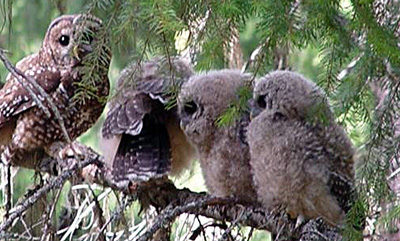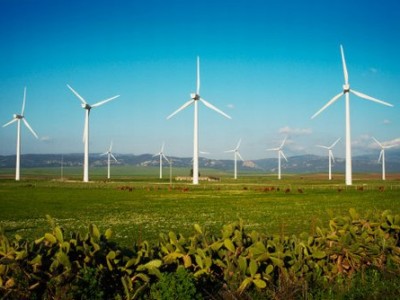Month: November 2017
ESA Under Attack. Again.
The Washington Post tomorrow is running an Op Ed written with Peter Alagona, a colleague in environmental studies at UCSB. We were approached by the Post and asked to write a piece addressing the current raft of bills that seek to weaken the Endangered Species Act and sharing our views about alternatives. With a tight limit …
Continue reading “ESA Under Attack. Again.”
CONTINUE READINGThe Growing Schism Between Coal and Oil
They’re both fossil fuels, but their producers don’t always have the same policy views.
Bush’s environmental policies were bad, but Trump’s policies are way worse. One reason is that Bush and Cheney were oilman, and Trump is obsessed with coal. Yes, oil and coal are both fossil fuels, but they have different economics and different policy stances. These are two very different industries. The U.S. coal companies are in …
Continue reading “The Growing Schism Between Coal and Oil”
CONTINUE READINGA Sense of Urgency at COP 23
Guest post by Alexandra Gay, UCLA Law student
Christiana Figueres, the former Executive Secretary of the UNFCCC who is widely credited with the success of COP 21 in Paris in 2015, launched a global initiative earlier this year called Mission 2020. The overall goal of the initiative is to ensure that global CO2 emissions reach a “turning point” by 2020 and begin to …
Continue reading “A Sense of Urgency at COP 23”
CONTINUE READINGDispatch from the Bonn UN Climate Conference
So what’s up with the Paris Agreement now that the U.S. has announced its intent to withdraw? The main annual UN conference on climate change is underway in Bonn, Germany, and UCLA Law is on the ground here. We’ll be reporting this week on what we see and hear. This conference, which serves as the …
Continue reading “Dispatch from the Bonn UN Climate Conference”
CONTINUE READINGOfficially-True Lies
Administration policy is based on a series of falsehoods.
There are some falsehoods which the United States government has now adopted as dogma. They aren’t true but they’re repeated day in and day out. Sadly, they’re sometimes not even deliberate falsehoods, because the people who repeat them have been brainwashed into believing them or are just too ignorant to realize the actual facts. “Greenhouse …
Continue reading “Officially-True Lies”
CONTINUE READINGPublic Lands Watch: Resilient Federal Forests Act
Bill to reduce environmental protections for timber management on federal lands passes House
The Resilient Federal Forests Act (RFFA), H.R. 2936—which would curb environmental review under the National Environmental Policy Act (NEPA) for a variety of forest management activities on National Forest and BLM lands—passed the House November 1. (We previously wrote about a version of this bill in committee here.) NEPA requires agencies to consider whether proposed …
Continue reading “Public Lands Watch: Resilient Federal Forests Act”
CONTINUE READINGA Major Defeat for Property Rights Advocates
Hardly anyone noticed a decision last June limiting the rights of property owners against regulators.
Murr v. Wisconsin was a sleeper case decided by the Supreme Court last June. But it deserves a lot more attention than it has gotten. As I discuss in a new paper, Murr was a major defeat for property rights advocates and a big win for land use planners and environmentalists. Murr has escaped much …
Continue reading “A Major Defeat for Property Rights Advocates”
CONTINUE READINGIt’s Official: Climate Change is Real and It’s Serious
The Administration allowed a key scientific report to come out. They’ll have trouble explaining it away.
The release of the Fourth National Climate Assessment got some attention from the press. The press mostly focused on the forthright endorsement of climate science by the NCA4 report — something of a surprise in the anti-science Trump Administration. That was indeed notable, but there are other features of the report that will make it …
Continue reading “It’s Official: Climate Change is Real and It’s Serious”
CONTINUE READINGHouse Republican Tax Plan Would Hurt Climate And Clean Tech Progress
The plan hits electric vehicles and wind energy but could present an opening for a national carbon tax
Republicans in the House of Representatives debuted their proposed tax reforms today, and climate and clean tech advocates are looking to see how the proposals will affect progress on these intertwined issues. Specifically, tax reform could impact electric vehicle and renewable energy deployment, which rely on federal tax credits to stimulate investment and demand. To …
Continue reading “House Republican Tax Plan Would Hurt Climate And Clean Tech Progress”
CONTINUE READINGPublic Lands Watch: Sage grouse
Interior Dept. considering revisions to protection for iconic species
The greater sage-grouse is the largest grouse species in North America, about the size of a domestic chicken. Estimates for its historic population are that it numbered 1.1 million across the sagebrush plains throughout the Western United States and Canada. The grouse depends on sagebrush habitat, but that habitat is declining due to a range …
Continue reading “Public Lands Watch: Sage grouse”
CONTINUE READING









